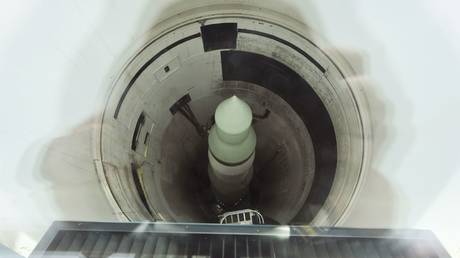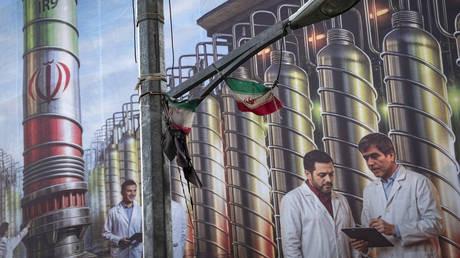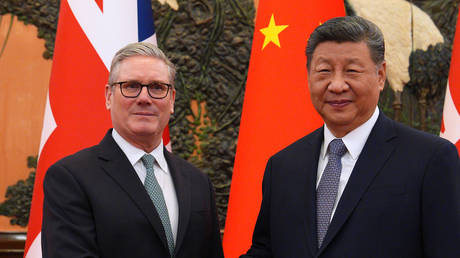
There’s no need to change America’s nuclear posture at the moment, a spokesman said
The US doesn’t see a need to change its nuclear posture at this point in time, Pentagon Press Secretary John Kirby told journalists on Tuesday. Ukrainian President Volodymyr Zelensky claimed Moscow could use tactical nuclear weapons in Ukraine during his interview with CNN on April 15.
The US Department of Defense is “constantly monitoring” nuclear threats to the country and took note of remarks made by Russian President Vladimir Putin in February, when he ordered Russian troops to start a military operation in Ukraine, Kirby said.
At the time, Putin warned that any nation trying to interfere in the Russian operation could face consequences unlike anything in their history, which many observers interpreted as a threat to use nuclear weapons. Russia put its nuclear deterrence on the highest alert in the early days of the Ukraine offensive, citing hostile signals coming from NATO members.
“In light of what’s going on in Ukraine, and certainly in light of the early rhetoric, we are actively monitoring every single day,” the spokesman said.
“We have seen no reason to change our strategic deterrent posture,” he added. At the moment, the Pentagon remains “comfortable that we have the ability, if required, to defend the homeland, our allies and our partners.”
Earlier, many Ukraine observers had speculated that Russia’s offensive in the country was not going as planned and that Moscow could up the ante by using tactical nuclear weapons. Zelensky reiterated the theory last week in an interview with CNN.
The Russian military has insisted that the campaign in Ukraine is progressing steadily and will achieve all objectives. Foreign Minister Sergey Lavrov dismissed Zelensky’s warning in an interview with Indian media this week. He said Russia had no intention of using nuclear weapons and called the Ukrainian leader “a not very adequate person” for saying otherwise.
Russia attacked its neighboring state in late February, following Ukraine’s failure to implement the terms of the Minsk agreements, first signed in 2014, and Moscow’s eventual recognition of the Donbass republics of Donetsk and Lugansk. The German- and French-brokered protocols were designed to give the breakaway regions special status within the Ukrainian state.
The Kremlin has since demanded that Ukraine officially declare itself a neutral country that will never join the US-led NATO military bloc. Kiev insists the Russian offensive was completely unprovoked and has denied claims it was planning to retake the two republics by force.




